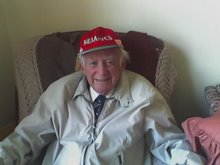
Oct. 26, 1941: Dispassionate SS officers parade a seventeen-year-old girl, a young man, and an older man through the streets of Minsk and hang them side by side at the gates of a yeast factory.
This was the first public execution of partisans in the German-occupied USSR during the Second World War.
The two men were accordingly identified and proclaimed heroes, while the teenage girl remained “unknown.”
Her picture can be seen in the Minsk Museum of the Great Patriotic War and in any Russian book about the partisan movement, but despite eyewitness testimonies, she steadfastly remains “ne ustanovlivena,” unidentified, in official sources, and even on her memorial plaque.
Despite conclusive historical sources which declare her unknown, many know her as Masha Bruskina, a Jewish resident of the Minsk ghetto who, in her tenure as a nurse, helped hospitalized Soviet personnel escape occupied Belarus to join the underground movement.
A dogged Minsk Jewish community refuses to forget their most famous partisan maiden. The yeast factory where the gallows stood still stands, and this year, a group of Jewish and non-Jewish survivors, veterans, and bystanders gathered to honor Masha’s name, and the two others who were hanged with her, Volodya Sherbateyivich and Kril Trus.
A classmate of Masha’s reminisced at the ceremony about how she and Masha studied for exams together and did their hair together. She will never forget Masha’s thick brown mane.
Photo 1: The plaque by the yeast factory where Masha was hanged reads “here on the 26th of October, 1941, the Fascists executed Soviet partisans K.E. Trus, V.E. Sherbateyivich, and a girl- surname unknown”
Photo 2: The Jewish Masha Bruskina is hanged with two other partisans, Kril Trus and Volodya Sherbateyivich. The sign around her neck reads in Russian and German: "We are partisans who shot at German soldiers."









